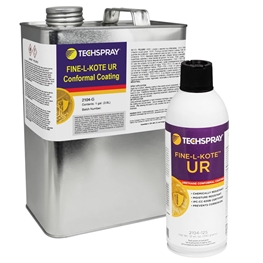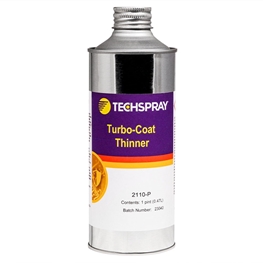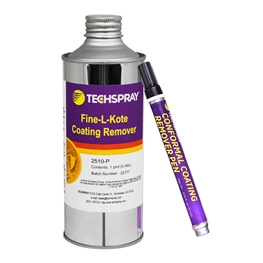Protect Electronics from Extreme Environments
Techspray offers SR, AR and UR conformal coating formulas for a wide variety engineering requirements including thermal, moisture & static resistance. All coatings are IPC-CC-830B and UL94 V-0 qualified.
Techspray offers a variety of conformal coating formulas for differing field or engineering requirements and is IPC CC 830B and UL94-0 Qualified or rated. Specifications generally depend on the type of protection needed: e.g., thermal, moisture, or static resistance.
Coatings contain Opti/Scan (except LED Coating) to allow quality control inspection of coverage and evenness of the coating on a PCB. A coated board can be passed under a standard, low-cost UV (short-wave black) light to fluoresce the coated areas. The brighter the glow, the thicker the coating.
Application methods:
- Dip – High volume method to fully coat boards. Thickness of the final coating is controlled by viscosity and withdrawal speed from the pot.
- Conformal Coating Spray – Computer controlled selective spray systems eliminate the need for masking. Higher viscosity is generally needed (70-200 cps) to create precise edge definition and prevent splattering.
- Manual Application – Aerosol and brushing are generally used for small production runs, rework and repair. The aerosol needs to be compatible with the original coating if it’s rework.
Resin Type
Application Method
Operating Temperature
Protective Properties
UL 746 Certified
Environmental & Safety
Applied Filters
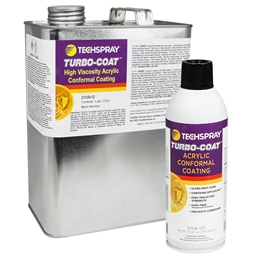
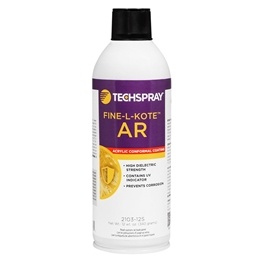
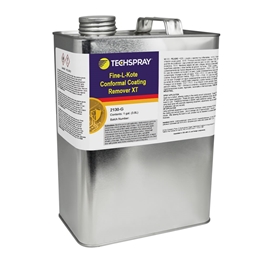
FAQ's
Conformal coatings are typically thin layers of material applied to electronic components or circuit boards to protect them from environmental factors like moisture, dust, chemicals, and mild mechanical stress. They are commonly used in various industries, including electronics, automotive, aerospace, medical electronics and more.
For more information, check out "The Essential Guide to Conformal Coating".
Whether or not conformal coating is required depends on the environment the electronic device will operate in, the reliability requirement of the device, and the cost of failure, whether in dollars or human lives. Typical consumer devices are generally not coated because cost is one of the top driving factors, and a coating step certainly adds to that. Devices operating in harsh environments may require coating, and the type of stresses and contamination will point to the best option, whether that is acrylic resin (AR), silicone resin (SR), urethane resin (UR), or some other type of protection. Aviation, aerospace, and medical devices often require coating because of the mission critical nature of these applications.



